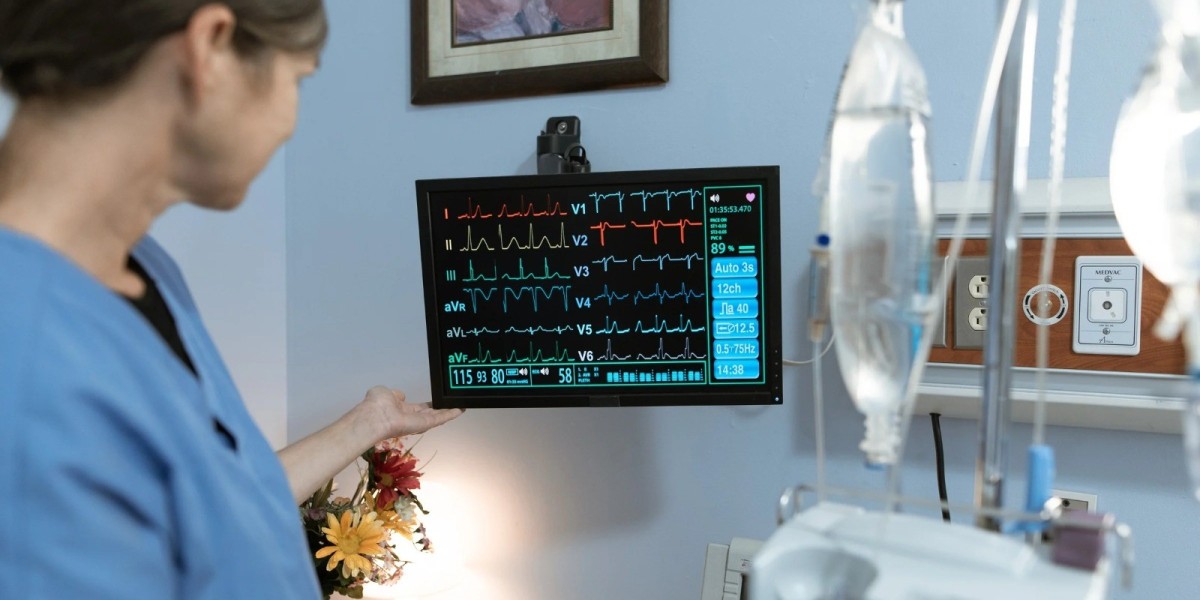Understanding ECG test Bangalore: What You Need to Know
Electrocardiogram (ECG) tests are crucial for diagnosing and monitoring various heart conditions. If you are considering an ECG test Bangalore, this guide will provide comprehensive insights into its significance, process, and benefits. Learn about this critical diagnostic tool and why it’s important to prioritize your heart health.
What is an ECG Test?
An ECG (Electrocardiogram) is a non-invasive diagnostic procedure that records the electrical activity of the heart. It is widely used to identify irregular heart rhythms, detect heart attacks, and monitor ongoing heart health conditions. Whether you're experiencing symptoms like chest pain, shortness of breath, or fatigue, an ECG test can provide vital information to guide your healthcare decisions.
Why is an ECG Test Important?
Early Detection of Heart Conditions
Heart diseases are often called silent killers due to their lack of obvious symptoms in early stages. An ECG test plays a vital role in detecting heart conditions early, enabling timely interventions.
Monitoring Heart Health
Regular ECG tests are essential for individuals with existing heart conditions, those undergoing treatments, or people with a family history of cardiac issues. These tests help monitor the effectiveness of treatments and track progress over time.
Prevention and Peace of Mind
Even without noticeable symptoms, undergoing periodic ECG tests can provide peace of mind and help prevent potential cardiac issues.
When Should You Consider an ECG Test?
Symptoms That May Require an ECG
Persistent chest pain
Shortness of breath
Dizziness or fainting
Irregular heartbeats or palpitations
Fatigue without a clear cause
Routine Check-ups
For individuals over 40, or those with risk factors like hypertension, diabetes, or high cholesterol, routine ECG tests are highly recommended.
What to Expect During an ECG Test
Preparation for the Test
Wear comfortable, loose-fitting clothing.
Avoid applying lotions or oils on your chest area as they can interfere with electrode attachment.
Inform your healthcare provider about any medications you’re taking.
The Procedure
Electrode Placement: Small, sticky electrodes are attached to your chest, arms, and legs.
Recording Electrical Activity: The electrodes detect electrical impulses generated by your heart, which are recorded on paper or digitally.
Duration: The process typically takes 5-10 minutes and is entirely painless.
After the Test
You can resume your normal activities immediately after the test. Your doctor will analyze the results and discuss them with you during your follow-up consultation.
Types of ECG Tests
Resting ECG
This is the most common type of ECG test, performed while you are at rest. It provides a baseline reading of your heart’s electrical activity.
Stress ECG
Also known as an exercise ECG, this test monitors your heart activity during physical exertion. It is particularly useful for identifying issues that occur only during activity.
Holter Monitoring
For continuous monitoring over 24-48 hours, a portable device called a Holter monitor is used. This is beneficial for detecting intermittent heart issues.
Where to Get an ECG test
Bangalore is home to several reputed diagnostic centers offering ECG tests. Ecotown Diagnostics provides reliable and affordable services, ensuring accurate results and a patient-friendly experience.
Interpreting ECG Results
Normal Results
A normal ECG indicates that your heart is functioning well, with no signs of irregularities or blockages.
Abnormal Results
Abnormal results may indicate:
Arrhythmias (irregular heart rhythms)
Blocked arteries
Previous or ongoing heart attacks
Structural abnormalities in the heart
Benefits of Early Diagnosis Through ECG Tests
Timely Treatment
Early detection allows for immediate medical intervention, which can prevent complications and improve outcomes.
Improved Quality of Life
By identifying and managing heart conditions early, you can maintain an active, healthy lifestyle.
Cost-Effective Healthcare
Preventive healthcare, including routine ECG tests, is far more affordable than treating advanced heart diseases.
How to Choose the Right Diagnostic Center in Bangalore
Key Factors to Consider
Accreditation: Ensure the center meets quality standards and is accredited by relevant authorities.
Experienced Staff: Opt for centers with qualified technicians and cardiologists.
Advanced Technology: Check for the availability of modern equipment for accurate diagnosis.
Patient Reviews: Look for testimonials and reviews from other patients.
Why Choose Ecotown Diagnostics?
Ecotown Diagnostics stands out for its commitment to quality, affordability, and patient care. Book your ecg test bangalore today and experience unmatched diagnostic excellence.
Conclusion
Understanding the importance of ECG tests and choosing the right diagnostic center can significantly impact your heart health. Whether for preventive care or symptom evaluation, an ECG test Bangalore is a critical step toward a healthier life. Take charge of your well-being today and schedule your test with trusted providers like Ecotown Diagnostics.
Frequently Asked Questions (FAQs)
1. What is the purpose of an ECG test?
An ECG test measures the electrical activity of the heart to identify irregularities, detect heart attacks, and monitor overall cardiac health.
2. How long does an ECG test take?
The test typically takes 5-10 minutes and is entirely painless.
3. Is an ECG test safe?
Yes, it is a non-invasive and completely safe diagnostic procedure.
4. Can an ECG detect a heart attack?
Yes, an ECG can detect signs of a previous or ongoing heart attack.
5. Do I need to fast before an ECG test?
No, fasting is not required for a standard ECG test.
6. How often should I get an ECG test?
The frequency depends on your age, medical history, and risk factors. Consult your doctor for personalized advice.
7. Can stress affect my ECG results?
Yes, stress can influence your heart’s electrical activity and may show up in the results.
8. What should I wear for an ECG test?
Wear loose, comfortable clothing and avoid applying lotions on your chest area.
9. What happens if my ECG results are abnormal?
Your doctor may recommend further tests or treatments based on the findings.
10. Is an ECG test covered by insurance?
Many insurance plans cover ECG tests as part of diagnostic services. Check with your provider for details.







